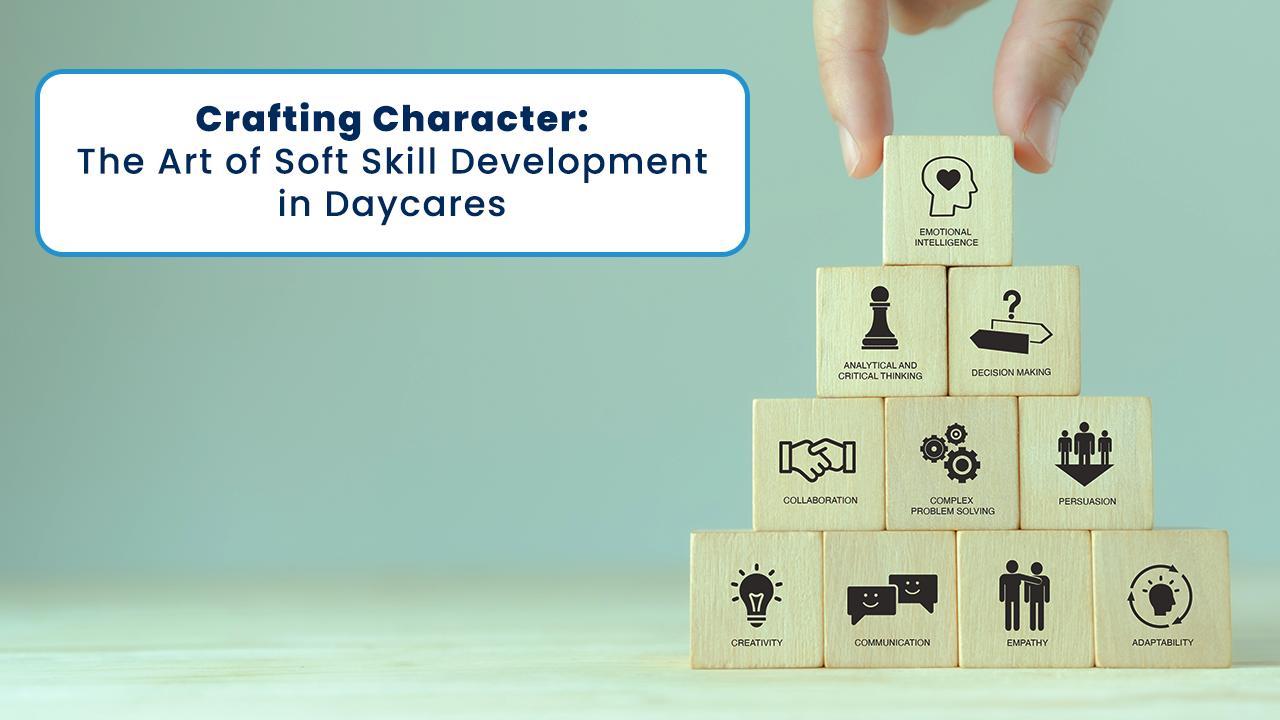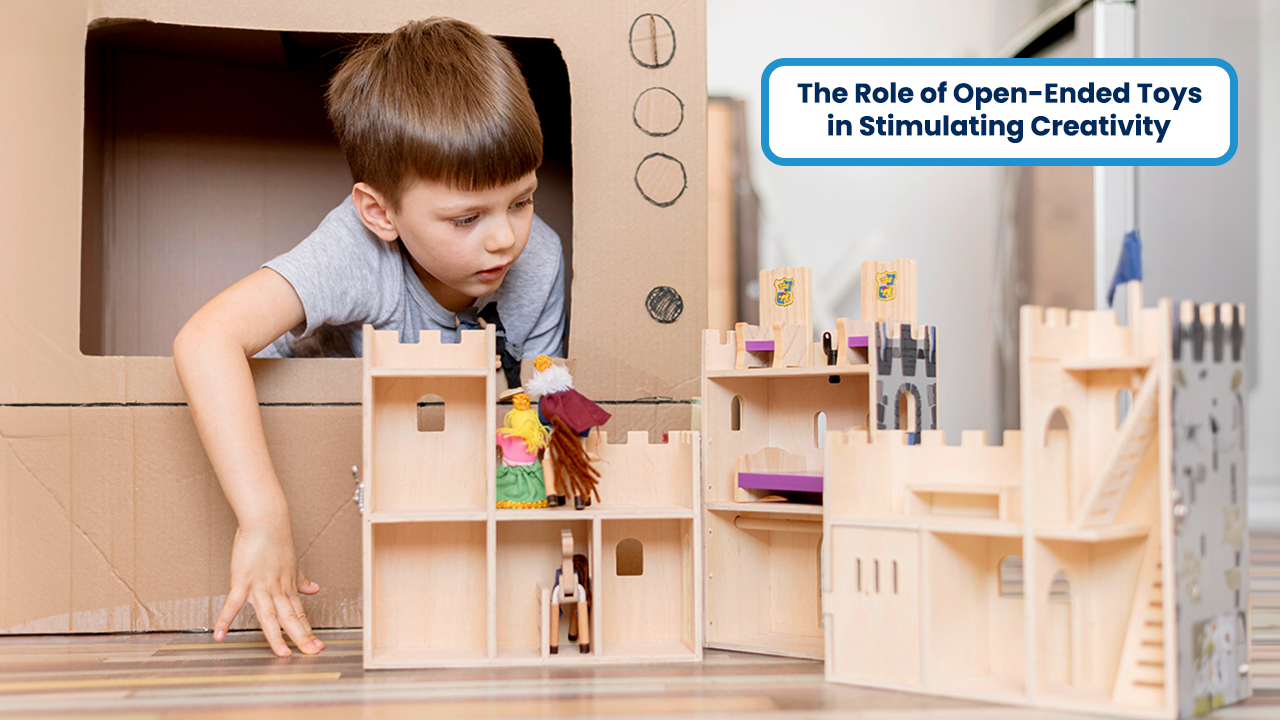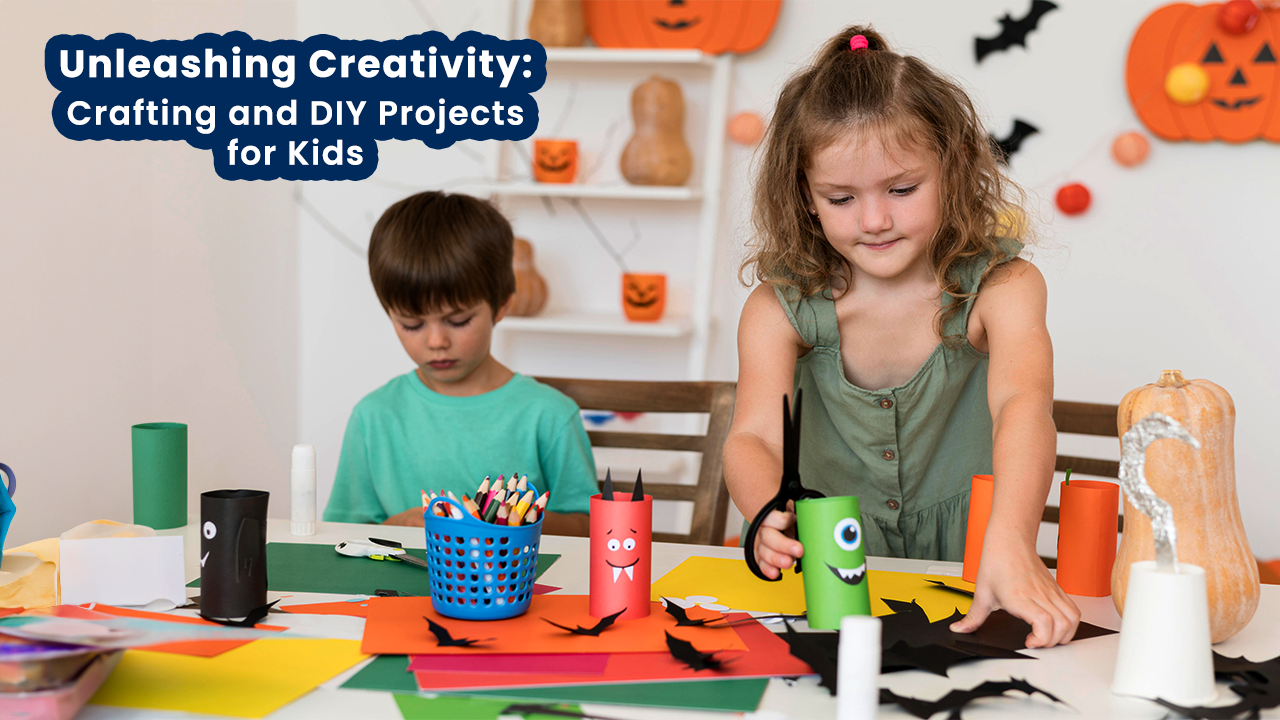
- Understanding Soft Skill Development in Daycares
- Strategies for Soft Skill Development in Daycares
- Challenges for Soft Skill Development in Daycares
- Solutions for Soft Skill Development in Daycares
- Measuring Progress in Soft Skill Development in Daycares
- Conclusion:
Soft skill development in daycares: in today’s fast-paced world, nurturing soft skills in our children is more critical than ever. Soft skills encompass a wide range of interpersonal abilities, such as communication, empathy, and teamwork, which are essential for success in both personal and professional life. Daycares serve as vital environments for the early development of these crucial skills. This blog will explore the art of soft skill development in daycares.
Understanding Soft Skill Development in Daycares
Soft skills are the intangible qualities that enable individuals to navigate the complexities of human interactions effectively. Soft skills are the building blocks for a child’s holistic development, influencing their relationships, academic success, and future career prospects. This emphasizes the importance of soft skill development in daycares.
Key Soft Skills for Kids
Soft skills tailored for children encompass a spectrum of traits and abilities. Communication skills enable children to express themselves, while empathy teaches them to understand and relate to others’ feelings. Problem-solving instills resourcefulness and adaptability, while teamwork fosters collaboration and social cohesion. Below are some Key skills:
1. Communication Skills:
Effective communication is essential for children to express themselves clearly, share their thoughts and feelings, and understand others. Strong communication skills include verbal and non-verbal communication, active listening, and effectively conveying ideas.
2. Empathy:
Empathy is the ability to understand and share the feelings of others. Teaching children empathy helps them develop compassion, kindness, and the capacity to consider the perspectives and emotions of their peers, promoting positive relationships and conflict resolution.
3. Problem-Solving Skills:
Problem-solving skills enable children to think critically, analyze situations, and find solutions to challenges. These skills encourage creativity, adaptability, and the ability to make informed decisions.
4. Teamwork and Collaboration:
Teamwork is the ability to work cooperatively with others toward a common goal. Encouraging children to collaborate on projects, share responsibilities, and communicate effectively within a group helps them develop essential teamwork and social skills.
5. Emotional Intelligence:
Emotional intelligence involves recognizing, understanding, and managing one’s emotions and those of others. Children with high emotional intelligence can navigate their feelings effectively, build strong relationships, and make emotionally informed choices.
Strategies for Soft Skill Development in Daycares
Daycares employ various creative strategies and activities to nurture soft skills. Here are some of the key methods:
Role-Playing and Pretend Play:
Encourage children to engage in role-playing activities where they can take on different roles and scenarios. This helps them develop empathy by understanding others’ perspectives and encourages problem-solving as they navigate different situations. For example, setting up a pretend grocery store or a doctor’s office can provide opportunities for role-playing.
Storytelling and Group Discussions:
Reading stories and engaging in group discussions can enhance children’s communication skills. Motivate them to express their thoughts and emotions related to the stories they read, nurturing their verbal articulation and active listening abilities. This practice additionally contributes to the expansion of their vocabulary and the enhancement of their comprehension skills. This also helps build vocabulary and comprehension.
Collaborative Projects:
Organize collaborative projects or activities that require teamwork. Activities like building puzzles, creating art projects together or working on a group science experiment promote teamwork, cooperation, and the ability to work harmoniously with others. It teaches children the value of sharing ideas and responsibilities.
Emotional Literacy Programs:
Implement programs or activities specifically designed to develop emotional intelligence. Teach children to recognize and express their emotions, as well as understand the emotions of their peers. Encourage discussions about feelings and provide tools for managing emotions, such as deep breathing exercises or creating a feelings chart.
Conflict Resolution and Peer Mediation:
Teach children constructive ways to resolve conflicts with their peers. When conflicts arise, guide them in discussing their issues and finding mutually beneficial solutions. This facilitates the development of conflict resolution skills among children, emphasizing the significance of empathy and proficient communication in resolving conflicts.
Challenges and Solutions for Soft Skill Development in Daycares
While the path to soft skill development in daycares is filled with promise, it has challenges. We will explore common obstacles daycare centers face and offer practical solutions to overcome them. These insights will assist both daycare professionals and parents in navigating potential roadblocks.
Challenges for Soft Skill Development in Daycares
Diverse Needs:
Children come from various backgrounds and have different developmental levels and needs, making it challenging to cater to each child’s specific requirements.
Limited Time:
Daycares often have limited time for structured activities, and allocating sufficient time for comprehensive soft skill development can be challenging.
Behavioral Issues:
Some children may exhibit challenging behaviors, such as aggression or extreme shyness, which can hinder their participation in group activities.
Parental Involvement:
The level of parental involvement in reinforcing soft skill development at home can vary, making it challenging to ensure consistency in skill building.
Solutions for Soft Skill Development in Daycares
Individualized Attention:
Implement strategies for differentiated instruction, where activities are adapted to suit each child’s diverse needs and abilities. Provide additional support to those who require it.
Incorporate soft skills:
Infuse soft skill development into everyday routines and activities, such as mealtimes, playtimes, and transitions. This allows for a more organic and continuous approach.
Behavioral Guidance:
Develop a behavior management plan in consultation with parents and professionals to address challenging behaviors. Establish a secure and nurturing environment, fostering children’s abilities to regulate their emotions and positively interact with their peers.
Effective Communication with Parents:
Maintain open and regular communication with parents, sharing information about soft skill development goals and strategies. Encourage parents to reinforce these skills at home through simple activities and conversations.
Measuring Progress in Soft Skill Development in Daycares
Measuring progress in soft skill development in daycares is critical to ensuring that children benefit from the efforts invested in their growth. It involves assessing the extent to which children have acquired and are applying these skills over time. Various methods can be employed, including structured observations, self-assessments, and feedback from caregivers and peers. These assessments help identify areas needing further attention and provide valuable insights into a child’s evolving emotional intelligence and interpersonal capabilities.
Conclusion:
In conclusion, the art of soft skill development in daycares holds profound implications for the future of our children and society at large. Soft skills are the bedrock upon which a child’s character is constructed, influencing their relationships, academic achievements, and future career prospects. Daycares, as the nurturing crucibles of early childhood, play a pivotal role in this journey through thoughtful strategies and activities; they instill vital skills such as empathy, communication, and teamwork. Learn more about how to choose a preschool here.


